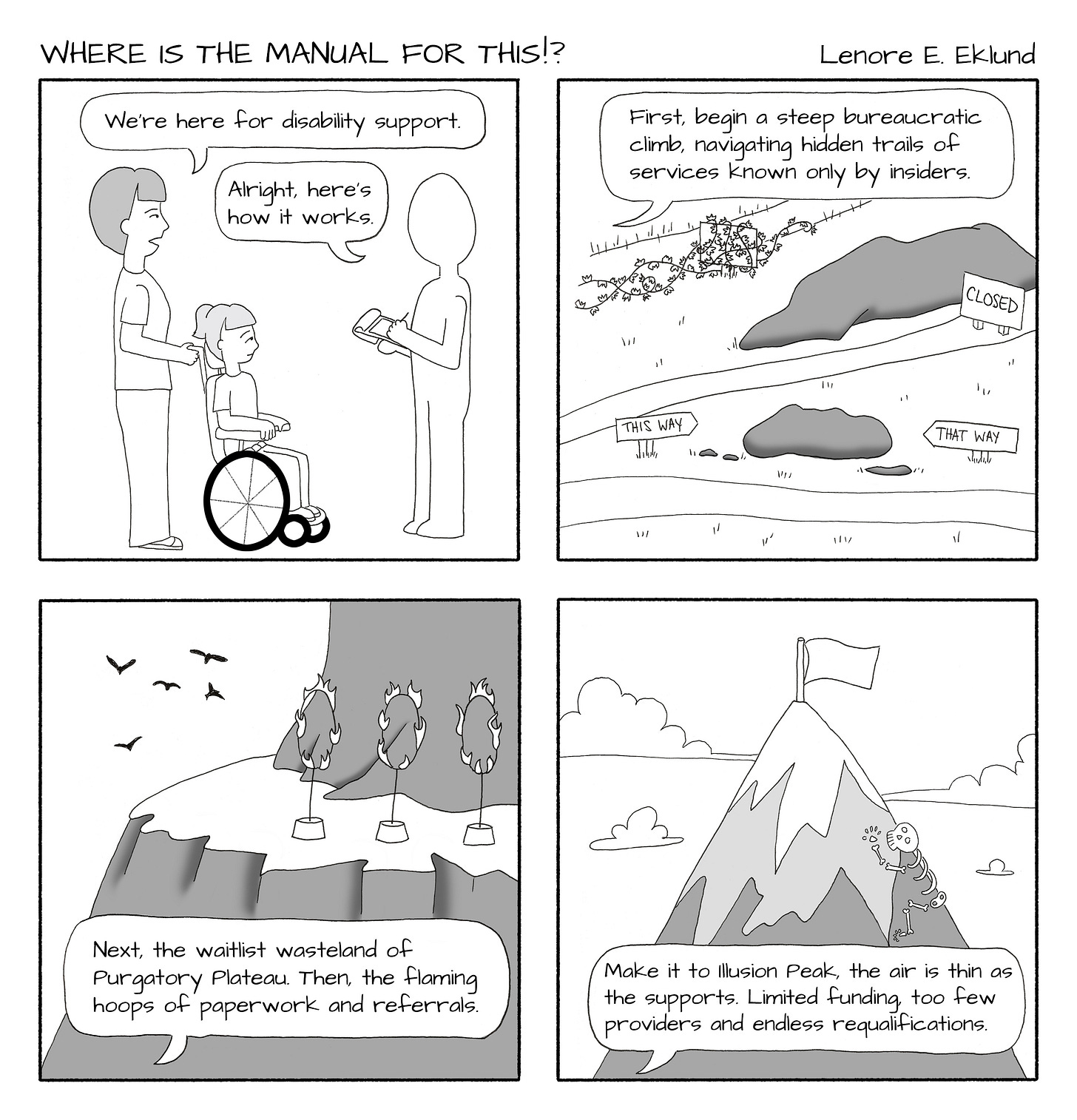Bureaucracy Never Gives a Road Map
Plus: The national push for Medicaid payments to 5.4 million family caregivers; and, Texas schools see sharp increases in special education students, while its group homes have little accountability.
Traversing the Bureaucracy Mountain Range is long and steep climb. Lenore Eklund nails the experience of medical motherhood again in her monthly cartoon. Except, I don’t know about that faceless person laying out all the steps at the beginning. In my experience, it’s usually: One more step, then one more, then oh, I forgot, can you just….
On the second …




